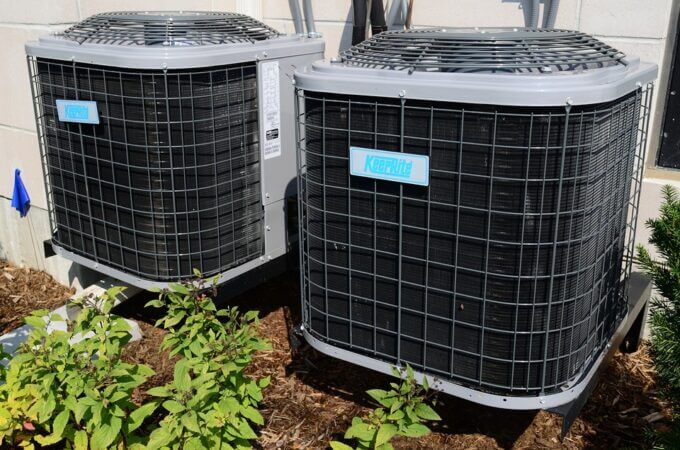HVAC systems are among the biggest consumers of energy on business premises, making them a great opportunity for energy savings, carbon reduction and cost-cutting. HVAC accounts for 39% of total office building energy consumption. So, there are many savings to be made.
Using smart HVAC automation and BMS HVAC integration can transform the way you manage modern HVAC systems.
The result is a more efficient HVAC system, which in turn reduces the risk of needing costly running and maintenance due to an unexpected breakdown.
Current HVAC limitations
Historically, HVAC control systems have been quite basic: a button to choose heating or cooling, buttons to adjust the target temperature, and usually a button to alter the fan speed.
Air conditioning is a constant source of workplace disputes, especially among employees who have direct access to the control panel but do not fully understand how to achieve the result they would like.
Legacy HVAC systems create multiple problems and limitations, some of which are already mentioned above:
- Limited controls with minimal automation
- Easily interfered with by unauthorised individuals
- Wasteful when controls are set inefficiently
While HVAC systems tend to have a thermostat – so that they turn off when the desired temperature is achieved – in practice this often does not happen due to personnel setting unachievable targets in order to keep the heating or air conditioning running constantly.
How smart HVAC technology works
Smart HVAC control systems remove much of the need for manual control and can provide secure remote access, eliminating the risk of unauthorised interference.
Your smart HVAC energy management system can keep the air conditioning working within an efficient range, reducing wasted energy and extending the lifespan of the equipment.
Automatic sensors can shut off systems much more responsively than a simple thermostat, as well as turning off HVAC devices if no human occupants are detected.
This does not remove your ability to manually control the system – either through a control panel, an online dashboard or a remote smartphone app, you can always set the target temperature, fan speed and system setting you want, just as you could in the past.
Why smart HVAC will be commonplace very soon
Smart HVAC installations are already growing quickly in number, especially in new-build commercial premises and modern office refurbishments.
More efficient HVAC solves numerous concerns of modern-day business premises and high-spec residential properties too:
-
- Better security of HVAC systems in public buildings
- Greater ability to cope in extremes (e.g. heat waves and cold snaps)
- Improved energy security with reduced waste
- Less conflict due to disagreements among personnel
- Reduced carbon footprint and wasted heat
For all of these reasons, among many more, HVAC consultants are seeing an increase in enquiries relating to smart heating and cooling controls, and BMS HVAC tech.
How smart HVAC can give you the edge
If you’re a property developer or owner-occupier, smart HVAC can help to make your premises more comfortable and more saleable.
With climate change and global warming at the top of corporate agendas, more business tenants are looking for ways to keep employees comfortable during extreme weather.
Thanks to the measuring and reporting capabilities of modern smart HVAC technology, systems can also help companies to comply with regulations requiring them to track their energy use.
Find out more about any of these issues – call Intecho’s smart HVAC consultants today to learn how we can make your HVAC systems more efficient and more affordable in the years to come.
